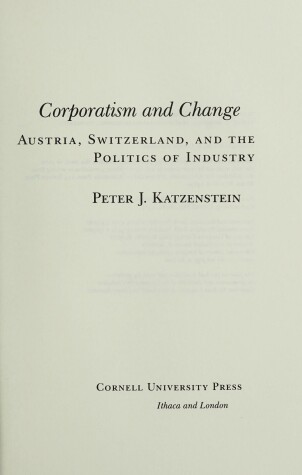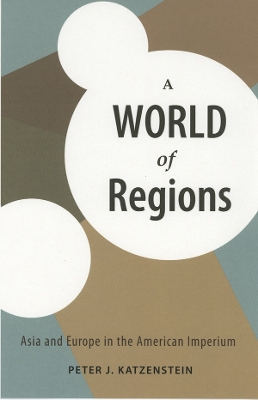Cornell Studies in Political Economy
4 total works
By the early 1980s the average American had a lower standard of living than the average Norwegian or Dane. Standards of living in the Netherlands, Belgium, Sweden, Switzerland, and Austria also rivaled those in the United States. How have seven small democracies achieved economic success and what can they teach America?
In Small States in World Markets, Peter Katzenstein examines the successes of these economically vulnerable nations of Western Europe, showing that they have managed to stay economically competitive while at the same time preserving their political institutions. Too dependent on world trade to impose protection, and lacking the resources to transform their domestic industries, they have found a third solution. Their rapid and flexible response to market opportunity stems from what Katzenstein calls "democratic corporatism," a mixture of ideological consensus, centralized politics, and complex bargains among politicians, merest groups, and bureaucrats.
Democratic corporatism is the solution these nations have developed in response to the economic crises of the 1930s and 1940s, the liberal international economy established after World War II, and the volatile markets of more recent years. Katzenstein maintains that democratic corporatism is an effective way of coping with a rapidly changing world-a more effective way than the United States and several other large industrial countries have yet managed to discover.
Nonviolent state behavior in Japan, this book argues, results from the distinctive breadth with which the Japanese define security policy, making it inseparable from the quest for social stability through economic growth. While much of the literature on contemporary Japan has resisted emphasis on cultural uniqueness, Peter J. Katzenstein seeks to explain particular aspects of Japan's security policy in terms of legal and social norms that are collective, institutionalized, and sometimes the source of intense political conflict and change. Culture, thus specified, is amenable to empirical analysis, suggesting comparisons across policy domains and with other countries. Katzenstein focuses on the traditional core agencies of law enforcement and national defense. The police and the military in postwar Japan are, he finds, reluctant to deploy physical violence to enforce state security. Police agents rarely use repression against domestic opponents of the state, and the Japanese public continues to support, by large majorities, constitutional limits on overseas deployment of the military. Katzenstein traces the relationship between the United States and Japan since 1945 and then compares Japan with postwar Germany. He concludes by suggesting that while we may think of Japan's security policy as highly unusual, it is the definition of security used in the United States that is, in international terms, exceptional.
Observing the dramatic shift in world politics since the end of the Cold War, Peter J. Katzenstein argues that regions have become critical to contemporary world politics. This view is in stark contrast to those who focus on the purportedly stubborn persistence of the nation-state or the inevitable march of globalization. In detailed studies of technology and foreign investment, domestic and international security, and cultural diplomacy and popular culture, Katzenstein examines the changing regional dynamics of Europe and Asia, which are linked to the United States through Germany and Japan.
Regions, Katzenstein contends, are interacting closely with an American imperium that combines territorial and non-territorial powers. Katzenstein argues that globalization and internationalization create open or porous regions. Regions may provide solutions to the contradictions between states and markets, security and insecurity, nationalism and cosmopolitanism. Embedded in the American imperium, regions are now central to world politics.



